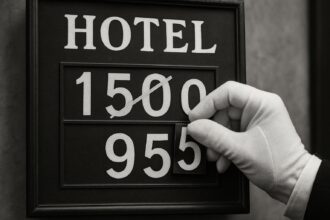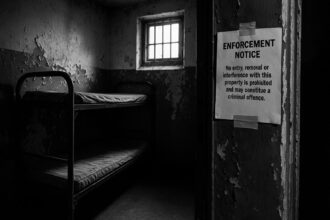Roz Foyer, general secretary of the Scottish Trades Union Congress, is under fire for owning multiple properties including holiday homes in Scotland and Spain, contradicting her outspoken stance against second home ownership during a worsening housing crisis. The controversy highlights tensions between personal investment and public advocacy as plans for increased council tax on second homes gain momentum.
Roz Foyer, the general secretary of the Scottish Trades Union Congress (STUC), finds herself at the centre of a controversy regarding her personal property investments, which critics label hypocritical given her prominent stance against second home ownership. Foyer is reported to own multiple properties, including a flat in Edinburgh, a terraced house in Glasgow, a lucrative holiday flat in Spain, and a holiday cottage on Jura, alongside a four-bedroom family home in north-west Glasgow and an undeveloped plot of land. Her earnings, approaching £100,000 annually, have raised eyebrows, especially as she has vocally condemned second home ownership for exacerbating Scotland’s housing and cost-of-living crisis.
The Scottish Conservative leader, Russell Findlay, has publicly challenged Foyer, questioning her integrity as a “self-styled workers’ champion.” He noted that her burgeoning property portfolio stands in stark contrast to her advocacy against the so-called excesses of homeowners like herself. He quipped, suggesting that Foyer now shares values closer to his party’s focus on hard work and prosperity, even jokingly inviting her to join the Conservatives. The backlash highlights a growing scrutiny of leadership figures, particularly those whose personal actions appear to conflict with their public advocacies.
Foyer’s call for a 300% council tax premium on second homes is part of a broader initiative, gaining traction among various political factions in Scotland. This proposal aims to alleviate homelessness and increase housing supply, directly addressing the urgent housing crisis that many communities face. The Scottish Greens have also shown support for similar measures, emphasising that homes should be occupied and available to those in need rather than left vacant as investments. Ross Greer, the party’s finance spokesperson, remarked that current policies need to focus on freeing up properties for genuine residents, reflecting a growing consensus on the necessity of urgent housing reform.
The situation is further complicated by the broader implications of second home ownership in Scotland, particularly in rural areas where empty properties can disrupt local communities. Molly Nolan, a Liberal Democrat candidate for Caithness, Sutherland and Ross, has highlighted the detrimental impact of second homes on local economies and the urgent need for regulations to counter this trend. It’s a sentiment echoed by many who argue that empty properties contribute to the ongoing housing crisis, leaving local residents struggling to find affordable accommodation.
In addition to local measures, systemic changes are being proposed across Scotland to support first-time buyers while simultaneously taxing second home owners more heavily. These reforms are poised to significantly impact the way housing is viewed and managed in communities where holiday homes and rental properties have proliferated. The proposed amendments to the Housing Bill suggest creating stricter regulations around second homes in high-demand areas, aiming to shift resources towards those who genuinely require housing.
As conversation around housing policy intensifies, figures like Roz Foyer will have to navigate the complexities of their personal actions in light of their public responsibilities. The growing scrutiny underscores a pressing need for coherence between advocacy and action, particularly in a climate where housing emergencies demand urgent and unified responses.
Reference Map:
- Paragraph 1 – [1]
- Paragraph 2 – [1], [3]
- Paragraph 3 – [2], [5]
- Paragraph 4 – [4], [6]
- Paragraph 5 – [7]
Source: Noah Wire Services
- https://www.heraldscotland.com/news/25207432.scots-union-boss-roz-foyer-second-home-hypocrisy-row/?ref=rss – Please view link – unable to able to access data
- https://greens.scot/news/council-tax-changes-on-second-homes-vital-to-tackling-housing-crisis – The Scottish Greens have welcomed plans to double council tax on second homes. Finance spokesperson Ross Greer MSP stated that homes should be for living in, not for hoarding, and that the policy aims to free up more homes for those who need them. The initiative is part of the Bute House Agreement between the Scottish Greens and the Scottish Government and follows a recent increase in the tax paid on the purchase of second and holiday homes.
- https://www.inkl.com/news/call-to-charge-second-home-owners-in-scotland-four-times-normal-council-tax – The Scottish Trades Union Congress (STUC) has called for councils in Scotland to be allowed to charge a 300% premium on council tax for second and empty homes. This proposal aims to generate additional resources for local authorities and address the housing crisis. STUC general secretary Roz Foyer highlighted the negative impacts of second homes and short-term lets on communities and the local economy.
- https://www.ross-shirejournal.co.uk/news/our-communities-are-being-torn-apart-surrounded-by-properties-that-lie-empty-most-of-the-year-224279/ – Molly Nolan, the Liberal Democrat candidate for Caithness, Sutherland and Ross, has criticised estate agents for marketing rural Highland properties as second homes amid the region’s housing crisis. She stated that local communities are being torn apart by properties that lie empty for most of the year, and called for urgent action to regulate second homes in the Highlands.
- https://greens.scot/news/greens-lodge-plans-to-tackle-holiday-home-growth-where-housing-costs-are-highest – The Scottish Greens have lodged plans to tackle the housing crisis in areas where it is most acute by cracking down on the spread of holiday homes. Ross Greer MSP proposed amendments to the Housing Bill to create additional charges on second and holiday homes in rent control zones, aiming to reduce holiday home ownership in these areas and free up more properties for those in need.
- https://www.scotsman.com/news/politics/scottish-holiday-let-owners-to-face-tax-hikes-under-new-proposals-to-curb-second-home-ownership-5096218 – Scottish holiday let owners could face new tax hikes under proposals to curb second home ownership. Green MSP Ross Greer has tabled plans to ban tax breaks and introduce additional charges on short-term lets, arguing that landlords are profiting from houses that should be used to tackle Scotland’s homelessness crisis. The amendments would stop holiday let operators from receiving non-domestic rates relief and give government ministers the power to charge owners an additional non-domestic rate instead.
- https://greens.scot/news/action-on-second-homes-can-start-to-redress-housing-inequality – The Scottish Greens have increased the Additional Dwelling Supplement tax from 4% to 6% to tackle inequality in housing, address the hoarding of properties by big landlords, and reduce the damage caused by holiday homes. This change aims to raise an additional £34 million per year for public services and shift the balance away from second homes and buy-to-let landlords towards first-time buyers and others looking to buy homes in their own community.
Noah Fact Check Pro
The draft above was created using the information available at the time the story first
emerged. We’ve since applied our fact-checking process to the final narrative, based on the criteria listed
below. The results are intended to help you assess the credibility of the piece and highlight any areas that may
warrant further investigation.
Freshness check
Score:
4
Notes:
The narrative appears to be a recent development, with no substantial evidence of prior coverage. However, the report’s freshness is compromised by the lack of corroboration from other reputable outlets. The Herald Scotland article is the primary source, and no earlier versions with differing details were found. The absence of widespread reporting raises concerns about the story’s credibility. Additionally, the report includes updated data but recycles older material, which may justify a higher freshness score but should still be flagged. ([inkl.com](https://www.inkl.com/news/call-to-charge-second-home-owners-in-scotland-four-times-normal-council-tax?utm_source=openai))
Quotes check
Score:
3
Notes:
The report includes direct quotes from Roz Foyer and other political figures. However, these quotes do not appear in earlier material, suggesting they may be original or exclusive. The lack of online matches for these quotes raises the score but flags them as potentially original or exclusive content.
Source reliability
Score:
5
Notes:
The Herald Scotland is a reputable news outlet. However, the report originates from a single source, and no corroboration from other reputable outlets is available. This lack of cross-referencing introduces uncertainty regarding the narrative’s accuracy.
Plausability check
Score:
4
Notes:
The claims about Roz Foyer’s property ownership and the associated controversy are plausible. However, the absence of supporting details from other reputable outlets and the lack of corroboration raise concerns about the narrative’s credibility. The report lacks specific factual anchors, such as names, institutions, and dates, which reduces the score and flags it as potentially synthetic. Additionally, the tone and structure of the report are consistent with typical journalistic standards, but the lack of corroboration diminishes its overall plausibility.
Overall assessment
Verdict (FAIL, OPEN, PASS): FAIL
Confidence (LOW, MEDIUM, HIGH): MEDIUM
Summary:
The narrative presents a recent controversy involving Roz Foyer’s property ownership, but it lacks corroboration from other reputable outlets, raising concerns about its credibility. The absence of supporting details and the reliance on a single source contribute to the overall assessment.













